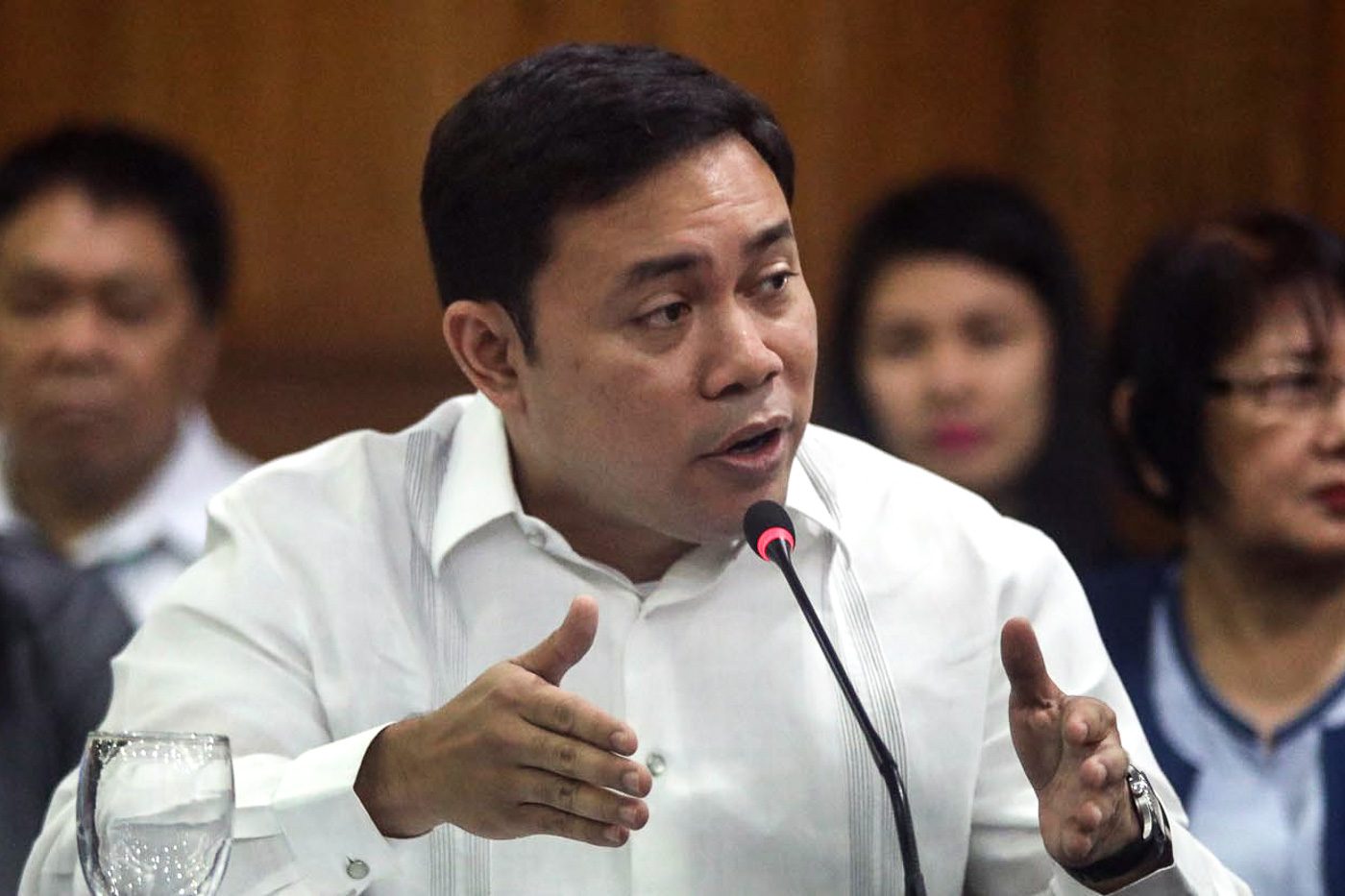SUMMARY
This is AI generated summarization, which may have errors. For context, always refer to the full article.

MANILA, Philippines – Department of Public Works and Highways (DPWH) Secretary Mark Villar assured lawmakers his department has adjusted its proposed P555.7-billion budget for 2019 in anticipation of the effects of the cash-based budgeting system.
This was Villar’s reply after lawmakers led by House appropriations committee chairperson Karlo Nograles raised the alarm after seeing the DPWH’s proposed budget for 2019 is about P93 billion lower than this year’s budget.
“It’s more challenging. It’s not impossible. It’s a different form of budgeting and we will do our best to adjust to it,” said Villar.
He said the DPWH adjusted its proposal to cover projects where funds can be disbursed in one year.
But for projects that would take more than one year to construct and implement, Villar said DPWH can always apply for a multi-year obligation authority (MYOA). (READ: Education, infra get a third of proposed P3.757-T 2019 nat’l budget)
What is a cash-based budgeting system? A cash-based budgeting system means that agencies have to spend their funds and implement their projects within the year.
Implementing government agencies are obliged to complete their project-contracts by the end of 2019 regardless of obstacles (like natural calamities) which may cause delays. Projects which a government agency cannot guarantee completion will be removed from its proposed budget.
What is a multi-year obligation authority? According to the Department of Budget and Management (DBM), an MYOA is document issued either for locally-funded or foreign-assisted projects implemented by government agencies in order to authorize the latter to enter into multi-year contracts for the full project cost.
Why are lawmakers concerned over the cash-based budgeting system? During the DPWH’s budget hearing, it became clear legislators were concerned the department might not be given enough money to fund its multi-year infrastructure projects. (READ: Proposed cash-based budget for 2019 ‘confusing’ lawmakers)
Nograles first raised the effect of the cash-based budgeting system in the DBM’s two-tier budget approach. Tier 1 should be based on actual cash requirements of ongoing projects, while tier 2 proposals should reflect the annual cash requirements of the expanded or new project.
Nograles, Davao City 1st District representative, pointed out that given the new budgeting system for 2019, DPWH’s tier 1 budget allocations were significantly lowered by the DBM
“The proposal of DPWH for tier 1 was P123.9 billion for ongoing projects. But because of the cash-based budgeting system, it was lowered to P65.5 billion only. For tier 2, DPWH submitted to DBM a budget of P528.1 billion, but now it’s just P65.5 billion… That’s why I said there is hocus pocus here,” said Nograles in a mix of English and Filipino.
Zamboanga City 1st District Representative Celso Lobregat also asked Villar, “How will you continue with ‘Build, Build, Build’ when your capital outlay has been reduced by P90 billion?”
Albay 1st District Representative Edcel Lagman also rallied on his colleagues to back the DPWH proposed budget, but he pointed out that the cash-based budgeting system is detrimental to the department.
“We must not only restore the excised allocations but must augment the DPWH’s budget once found to be justified and imperative. One of the major casualties of the budgetary calisthenics now known as cash-based budgeting is the DPWH with a slash amounting to P 93.343 billion,” he said.
The DPWH chief said this was why they have readjusted their assumptions in their proposed 2019 budget.
Villar reiterated that his department has no choice but to follow the cash-based budgeting system the DBM is proposing for next year.
“It is the mandate of this department that if they tell us to disburse in one year, we have to adjust our assumptions based on that. It would not be advisable for us to create a budget not based on this allocation knowing that some projects would not be able to disburse,” he said. – Rappler.com
Add a comment
How does this make you feel?
There are no comments yet. Add your comment to start the conversation.